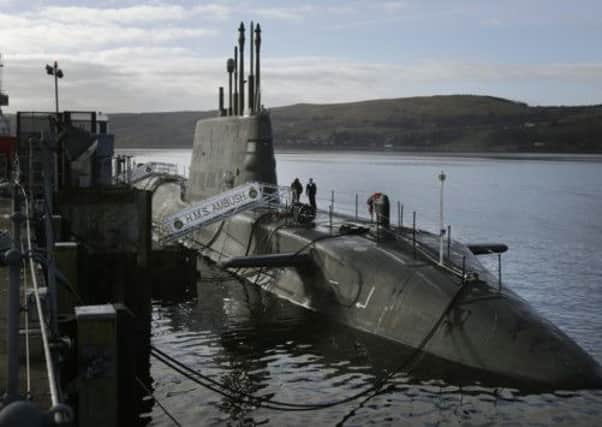‘Imbalance’ in security decision making in UK


The independence debate has highlighted a lack of political, academic and policy scrutiny of security in Scotland which must be addressed regardless of the outcome of the referendum, a team led by Edinburgh University security expert Dr Andrew Neal has found.
Dr Neal is convening a series of seminars, funded by the Economic and Social Research Council, to discuss the prospect of independence or the implications for continuing devolution with UK security policymakers currently encroaching on devolved areas.
Advertisement
Hide AdAdvertisement
Hide AdFirst Minister Alex Salmond’s former adviser on referendums Stephen Tierney, who is now advising the Scottish Parliament’s Referendum Bill Committee, will also contribute to the study.
Dr Neal said: “Even without independence, security governance is already encroaching beyond the reserved matters of defence and foreign policy and becoming part of everyday governance at multiple levels of government.
“There is almost no academic literature on Scotland and security, and what little there is relates to the traditional areas of defence and foreign affairs.
“Currently there is no security think-tank network for Scottish policymakers as there is in London like the Royal United Services Institute or Chatham House.
“Academic security expertise exists across Scotland but has few links with the Scottish institutions of government. All of the UK’s security services are based in England, such as MI5, MI6, GCHQ and Defence Intelligence.
“All the UK Government centres of security policymaking are based in Westminster, like the National Security Council and Joint Intelligence Committee in the Cabinet Office and the Office for Security and Counter-Terrorism in the Home Office.
“All scrutiny and oversight bodies with an interest in security are based in London, like the Intelligence and Security Committee, select committees for defence, foreign affairs and home affairs, joint committees on human rights and the national security strategy, independent reviewer of terrorism legislation.
He added: “The seminar series will invite policymakers, politicians, practitioners and academics from Scotland, the UK and comparator countries to address this imbalance.”
Advertisement
Hide AdAdvertisement
Hide Ad“The Scottish Government’s 2009 white paper on Scotland’s constitutional future makes no mention of security governance, and there is little evidence that Scotland’s political elite has considered this question beyond the traditional defence issues of Nato membership, Trident and the dividing up of the Armed Forces.”
The seminars, which will run from September through to 2015, will explore the potentially different security priorities of Scotland and the UK and whether these priorities can be separated in a highly integrated British Isles.
They will also explore how Scotland’s ejection from the EU, either through independence or a UK in/out referendum, could affect security, and lessons from the Nordic states which have varying security solutions.
Dr Neal said: “These questions are pertinent not only in prospect of a Yes vote and any subsequent inter-government negotiations but also in prospect of a No vote and the possibilities of longer-term constitutional change.
“Even in the event of a continuation of the constitutional status quo, the devolved institutions of government still need to increase their interest in security governance because of its proliferation across government departments, policy areas and areas of democratic oversight.”
The team also features Edinburgh University international relations experts Charles Raab and Dr Juliet Kaarbo, St Andrews University experts Dr Holger Stritzel and Dr William Vlcek and security expert Professor Thierry Balzacq from the University of Namur in Belgium.